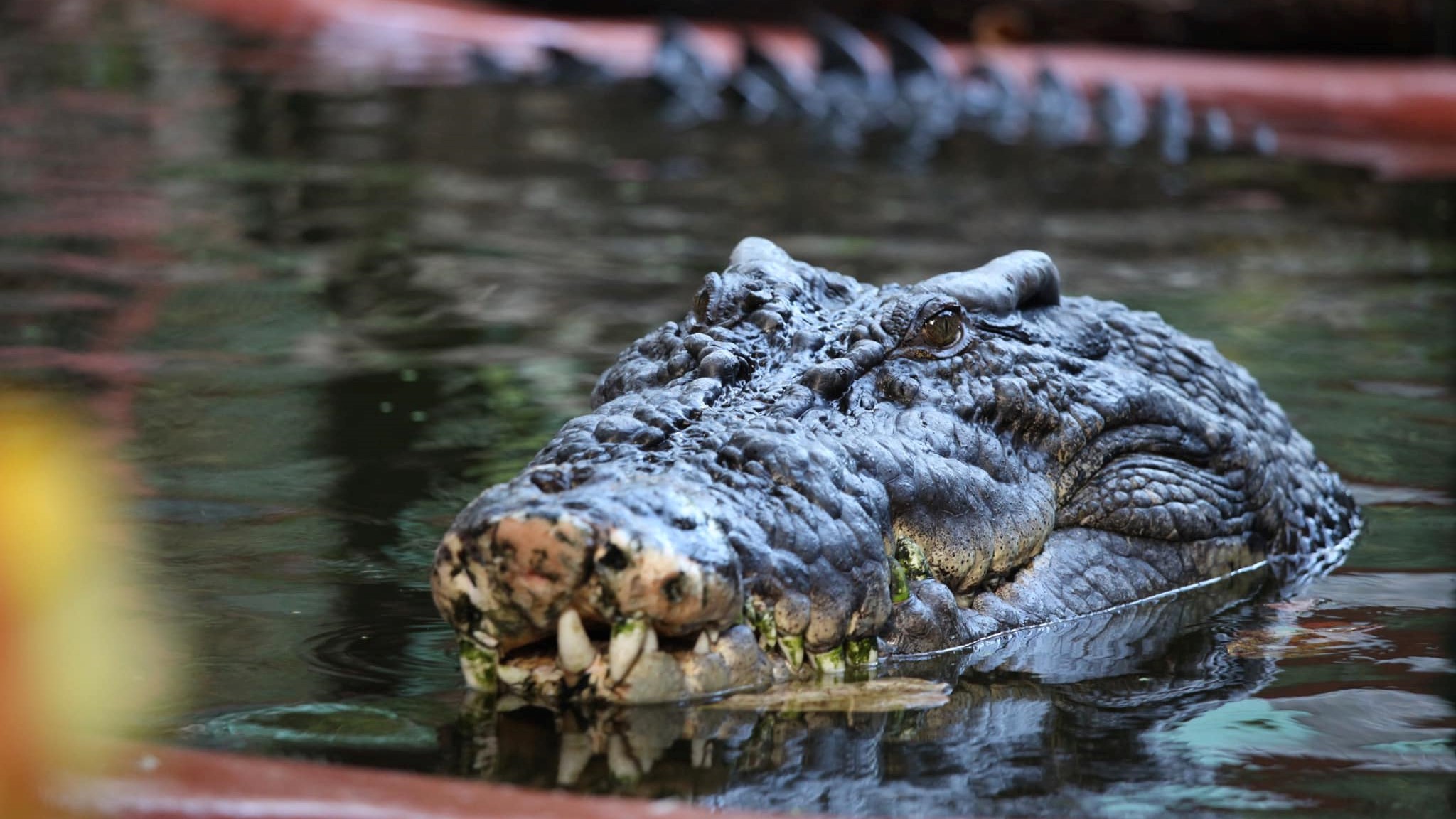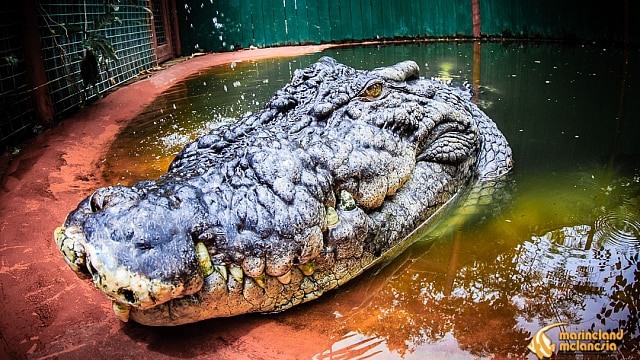120-year-old Cassius is pushing limit of crocodile longevity — and he's got 'years to come,' expert says
The ancient, 18-foot-long crocodile — the world's largest living in captivity — is healthy but occasionally displays signs of trauma from his troubled youth in the wild.

Cassius, a 120-year-old crocodile living in captivity in Australia, is "happy and healthy" and will live "for years to come," experts who conducted his annual health check say.
"Cassius is such a magnificent, beautiful boy," Sally Isberg, managing director at the Center for Crocodile Research in Australia who led the assessment, said in a video shared with Live Science. "He's just an absolutely fascinating character."
At 18 feet (5.5 meters) long, Cassius is the world's largest crocodile living in captivity and recently turned 120, or thereabouts. A health assessment conducted June 19 found "no reason to believe Cassius will not live for years to come," Toody Scott, a crocodile keeper at the Marineland park where Cassius now lives, told Live Science in an email.
Researchers don't know how long saltwater crocodiles (Crocodylus porosus) can live for, but they can die of old age, said Adam Rosenblatt, an assistant professor of biology at the University of North Florida.
"My own educated guess is that the maximum lifespan for crocodilians as a group is in the range of 100-120, but they would only attain those ages in captivity," Robenblatt told Live Science in an email. "In the wild most crocodilians probably don't live past 60."
Related: 'Virgin birth' recorded in crocodile for 1st time ever
Cassius has spent more than 35 years at the Marineland Crocodile Park on Green Island. He was captured on a cattle ranch in 1984 after he attacked livestock, having roamed in the wild for up to 80 years.
Sign up for the Live Science daily newsletter now
Get the world’s most fascinating discoveries delivered straight to your inbox.
The researchers noted that the gigantic croc becomes skittish when keepers use machinery around the park, which may stem from trauma he suffered during his time in the wild.

Keepers told Isberg that Cassius "exhibits funny behavior" and "reacts badly" when they use loud equipment and machinery near his enclosure.
"He was taken from a situation in the wild where I feel that he wasn't very happy," Isberg said.
Cassius was missing the tip of his snout when he was caught, leading researchers to believe he was responsible for attacks on boats that — at the time — were pinned on another crocodile called Sweetheart.
"He had the tip of his snout broken, which you can get from attacking a propeller," Grahame Webb, a crocodile researcher who participated in the capture, told ABC News.
Crocodiles have extremely sensitive mouths, and Cassius may be more delicate than most.
"The scales on the front of their mouth are all about pressure receptors; they're all about honing in on prey," Isberg said. "Maybe those boat motors [created] extra vibration that quite irritated him. When a croc gets irritated by something, the only way he can express that irritation is to go to bite at it," Isberg said.
But now, in captivity, Cassius appears to be "a happy, healthy boy," Isberg said.
The ancient crocodile will undergo another checkup next year. Assessments are typically done through observation to avoid causing the animal stress. "Crocs are apex predators and have a very heightened fight or flight response," Scott said. "If restrained, the flight response is triggered and it can take some time for the crocodile to recover."
In the meantime, keepers will make sure Cassius gets enough sunlight to stay healthy by clearing the tree canopy over his pen.
"A stress-free crocodile generally will self-heal any injuries and be free from disease, as they have a stronger immune system [than stressed crocodiles]," Scott said.

Sascha is a U.K.-based staff writer at Live Science. She holds a bachelor’s degree in biology from the University of Southampton in England and a master’s degree in science communication from Imperial College London. Her work has appeared in The Guardian and the health website Zoe. Besides writing, she enjoys playing tennis, bread-making and browsing second-hand shops for hidden gems.









